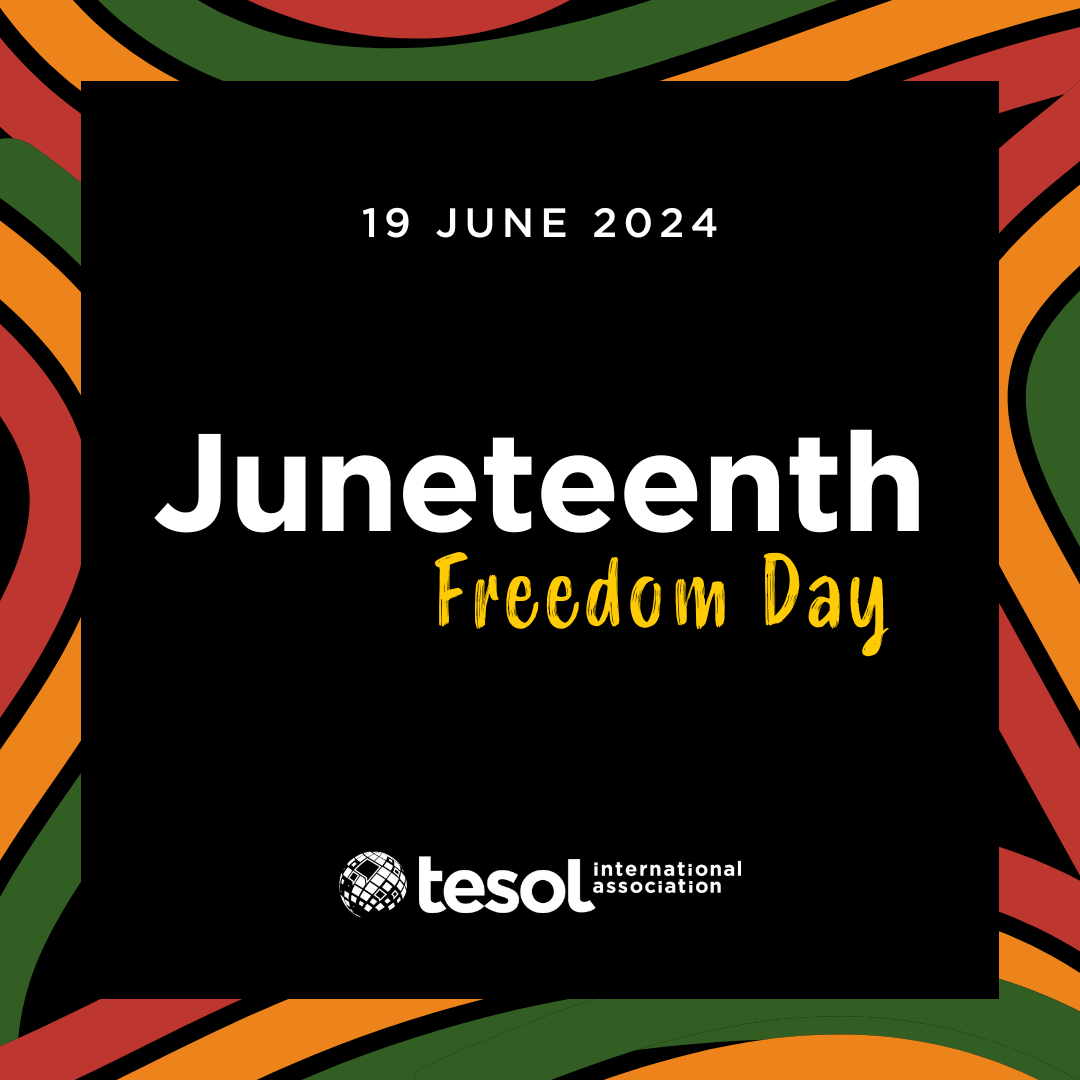Celebrating Juneteenth, Freedom, and Reading

Greetings from the University of North Carolina at Charlotte! It’s summertime in this part of the world, and with the school year wrapping up, it’s hard to say who is more excited — teachers or students! An extended summer vacation, however, is something few professionals in the United States can claim as their own. For federal workers, there are only 11 holidays. The newest one falls on 19 June.
During the first summer of his presidency, in 2021, President Joseph Biden signed the Juneteenth National Independence Day Act into law — to remember the day in 1865 that Major General Gordon Granger ordered the enforcement of the Emancipation Proclamation in Galveston, Texas.
General Order No. 3: “In this proclamation, issued June 19, 1865 by Union general Gordon Granger, he informs the people of Galveston, Texas, that those who had been enslaved were now free.”
Two months before General Gordon’s troops arrived in Galveston, on 9 April, the Army of Northern Virginia surrendered at the McLean House in the village of Appomattox Court House, Virginia. Today, it’s a national historical park and about a three-hour drive north from Charlotte, just outside of Richmond, Virginia.
But the Civil War was not completely over, even with the surrender at Appomattox — not until the Union Army reached Texas, where chattel slavery was still in effect. Without the Union Army to enforce it, the Emancipation Proclamation was purely rhetorical. That’s the significance of 19 June, or Juneteenth. It’s the day chattel slavery ended in the United States once and for all.
I remember the first Juneteenth I ever celebrated, in 2021. The COVID-19 vaccines were slowly becoming available to the public. We stood in line to receive the first and second dosages at a little church down the road from us where hundreds of volunteers came out to administer them to thousands of neighbors. We came out together after a year of social distancing.
At a 2023 Juneteenth White House South Lawn concert, the president talked about the day’s significance:
So Juneteenth, as a federal holiday, is meant to breathe new life into the very essence of America — (applause) — to make sure all Americans feel the power of this day and the progress we can make as a country; to choose love over hate, unity over disunion, and progress over retreat. Choosing to remember history, not erase it; to read books, not ban them — (applause) — no matter how hard some people try.
For all these reasons, Juneteenth is widely known as the United States’ “second Independence Day”—alongside July 4th, when we celebrate the 1776 Declaration of Independence. It’s a day for celebrating freedom.
For TESOL professionals, it's notable that Biden’s 2023 remarks touched on literacy and, more specifically, book banning — a social phenomenon that has become increasingly relevant in contemporary U.S. K–12 public schools. The American Library Association’s Office for Intellectual Freedom keeps detailed records. For example, in 2023, there were 4,240 book titles targeted for removal from schools and libraries in various states — a number surging 65% from 2022. There’s a real movement to censor what sort of texts our students can have access to.
Here’s a Juneteenth reading list from the Smithsonian's National Museum of African American History & Culture: In honor of Juneteenth and as a way of celebrating the day and its meanings, read, and read freely.

